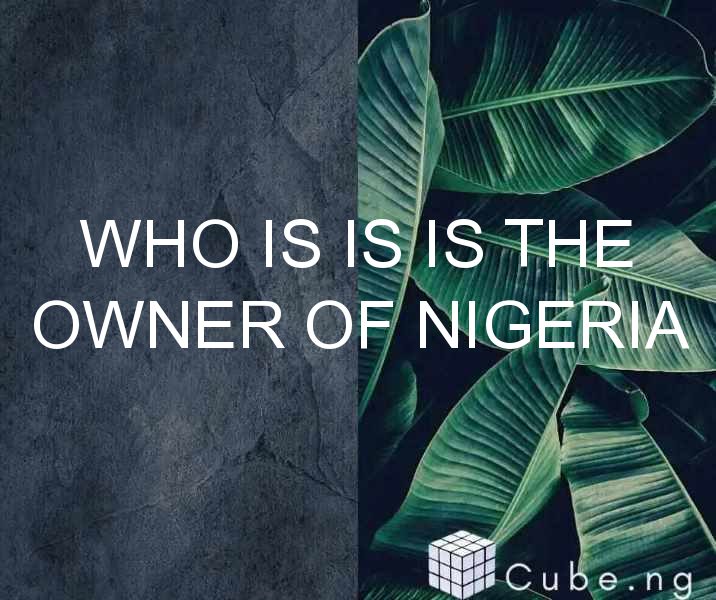Table of Contents
Who Is The Owner Of Nigeria?
Nigeria is one of the largest and most populous countries in Africa. It is known for its rich culture, diverse people, and vast resources. However, despite its abundance of natural resources, Nigeria has struggled with political instability and corruption. This has led many to ask the question, "Who is the owner of Nigeria?" In this article, we will explore the answer to this question and shed some light on the complex political landscape of Nigeria.
The Brief History of Nigeria
Before we delve into the current political situation in Nigeria, it's important to understand its history. Nigeria gained its independence from British colonial rule in 1960, and since then, it has experienced periods of democracy and military rule. In 1999, Nigeria returned to democracy with the election of Olusegun Obasanjo as president. Since then, there have been several presidential elections, with the most recent one held in 2019.
The Structure of Nigerian Government
Nigeria operates a federal system of government, which means power is shared between the federal government and state governments. The president is the head of state and government, and he is assisted by the vice president and cabinet ministers. The National Assembly, which comprises the Senate and House of Representatives, is responsible for making laws at the federal level. Each state has a governor who is the head of the state government, and there are also state assemblies that make laws at the state level.
The Role of Wealth in Nigerian Politics
One of the reasons why the question of who owns Nigeria is so complex is that wealth plays a significant role in Nigerian politics. Nigeria is a resource-rich country with vast reserves of oil, gas, and minerals. However, the majority of the population still lives in poverty. This has led to a situation where some individuals have amassed vast wealth, often through corrupt means.
There have been allegations of corruption against several Nigerian politicians, including former presidents and governors. Some of these politicians are known to own vast estates, private jets, and luxury cars. However, proving ownership of these assets is often difficult, and there have been calls for greater transparency and accountability in Nigerian politics.
The Influence of Ethnicity and Religion in Nigerian Politics
Another factor that makes the question of who owns Nigeria complicated is ethnicity and religion. Nigeria is a diverse country with over 250 ethnic groups and several major religions, including Christianity and Islam. Ethnic and religious affiliations often play a significant role in Nigerian politics, with politicians often aligning themselves with particular groups to gain support.
This has led to a situation where some ethnic groups and regions are perceived to have more power and influence than others. For example, the north of Nigeria is predominantly Muslim, and many of the country's presidents have come from this region. This has led some to question whether there is a northern "cabal" that controls Nigerian politics.
The Role of International Actors in Nigerian Politics
Finally, it's worth considering the role of international actors in Nigerian politics. Nigeria is an important country in Africa and the world, and its stability and economic growth are of interest to many countries and organizations. International actors, such as the United States, China, and the European Union, have been known to exert influence on Nigerian politics.
For example, during the 2019 presidential election, there were reports of foreign countries and organizations providing financial and material support to particular candidates. This has led some to question whether foreign actors have undue influence on Nigerian politics and whether this affects the country's sovereignty.
Final Thoughts
In conclusion, the question of who owns Nigeria is a complex one with no easy answer. Wealth, ethnicity, religion, and international influence all play a significant role in Nigerian politics, and there are often competing interests at play. However, it's clear that the Nigerian people deserve a government that is transparent, accountable, and works in their best interests. Only through greater transparency and accountability can Nigeria reach its full potential and become a prosperous and stable country.




